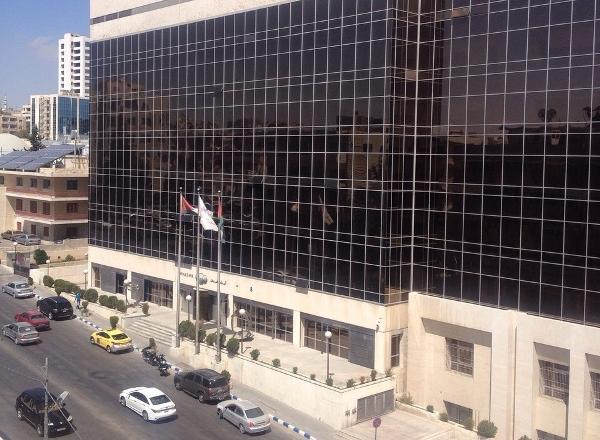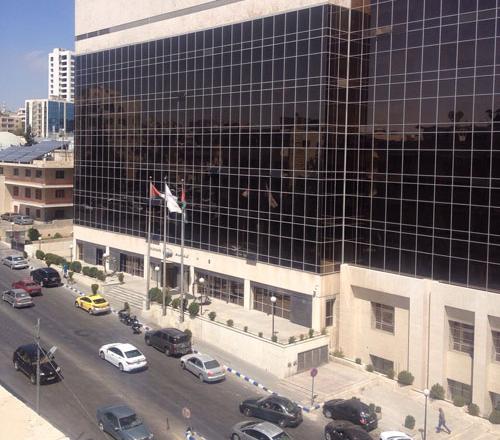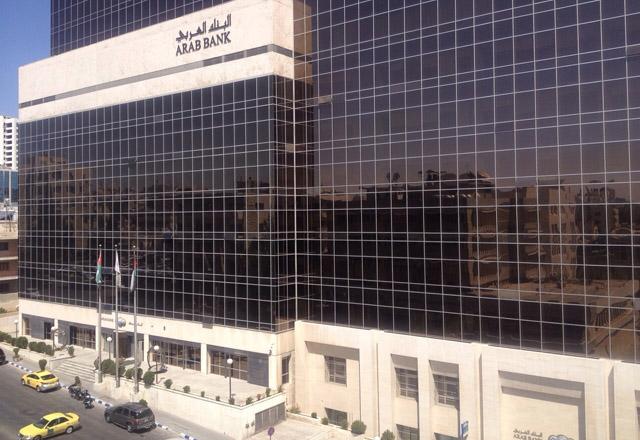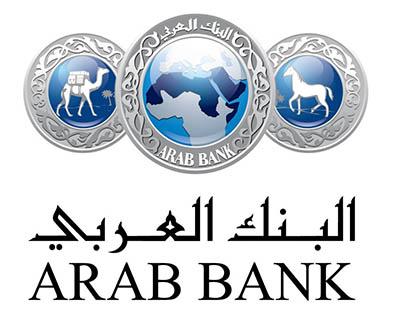You are here
Arab Bank says to appeal US verdict on Hamas links
By Omar Obeidat - Sep 23,2014 - Last updated at Sep 23,2014

AMMAN – Arab Bank will appeal a New York verdict that found the Amman-based bank liable on counts of providing material support to Palestinian group Hamas, its lawyer announced Tuesday.
On Monday, a New York jury found Jordan's largest bank, with over 600 branches worldwide, was liable on 24 counts of supporting "terrorism" by transferring funds to Hamas.
The verdict came after a month-long trial at the eastern district court in Brooklyn that followed a federal lawsuit filed in 2004 by hundreds of Israelis for allegedly holding accounts that financed attacks they claim killed members of their families in Israel and the Palestinian territories between 2001 and 2004.
Global law firm DLA Piper, which is representing Arab Bank in the trial known as Linde vs. Arab Bank, said Monday's verdict came as no surprise because the proceeding conducted under the New York district court were based on improper sanctions, which the US government found to be "erroneous".
Stock market reaction
At Tuesday’s trading session, investors at the Amman Stock Exchange reacted with distress following the verdict news with the opening price of Arab Bank shares going down by over 6 per cent dropping from JD7.75 per share to JD7.22.
However, the share price recovered at the closing of the session to JD7.6 per share, registering a 1.9 per cent drop.
Central Bank of Jordan says ruling unjust
The Central Bank of Jordan (CBJ) described the verdict as unjust and legally unsound.
The CBJ said in a statement issued Tuesday that it has been closely following the developments in the case and has been offering its support and assistance throughout the process, adding the support and assistance stems from the government’s confidence in this financial institution’s banking operations and compliance procedures.
The jury’s recent liability verdict is subject both to further proceedings in the district court and, subsequently, to appeal. Arab Bank’s ability to defend itself before the jury was prejudiced by a sanctions order imposed by the court as a result of Arab Bank’s compliance with laws in the jurisdictions in which it operates, including Jordan, said the statement, adding under the US procedural rules, Arab Bank was not able to appeal that order before trial, but it will now have the opportunity to show that the sanctions were incorrectly imposed and that they significantly prejudiced Arab Bank’s ability to defend itself, resulting in an unjust and legally unsound verdict.
“Notwithstanding the jury’s verdict, and given that Arab Bank will continue to defend these claims through further litigation in the trial and appellate courts, the Central Bank of Jordan has not determined any risks to Arab Bank’s financial health during this period,” the statement said.
Arab Bank has solid year-on-year earnings, has a strong level of capitalisation with a capital adequacy ratio of 15 per cent, and enjoys a very strong liquidity position, according to CBJ.
History of the trial
In 2005, plaintiffs requested that Arab Bank produce records of specified accounts maintained at its branches, primarily concerning organisations designated by the US as foreign terrorist organisations and their alleged affiliates.
Arab Bank objected, arguing that producing the requested documents would violate bank secrecy laws and that it could face criminal sanctions if it gave US lawyers the confidential records of its customers.
US District Court Judge Nina Gershon sanctioned the bank for failing to turn over requested documents proving it had no links to terrorist groups.
The law firm made the announcement of the appeal on a special website (arabbankfacts.com) it maintains on behalf of the Amman-headquartered bank to share information about the litigation.
“Arab Bank predicted that any proceeding conducted under the district court’s improper sanctions, which the US government found to be ‘erroneous’, would be nothing more than a show trial,” said the law firm in a statement issued after the verdict.
Once the court eliminated the bank’s defences, permitted weeks of inadmissible and inflammatory testimony of plaintiffs’ witnesses, and rejected the supreme court’s binding causation standard, the verdict against the bank was inevitable. Under these circumstances, the verdict, finding the bank liable for legitimate and routine financial services, comes as no surprise, the law firm said.
“Taken together, the court’s rulings excluded nearly all evidence about banking and put Hamas on trial, but as Judge Weinstein found in dismissing the related Gill case, ‘Hamas is not the defendant; the Bank is’,” it added.
Arab Bank believes it will ultimately prevail in this case. The trial was infected by scores of errors, and the bank has very strong grounds for appeal. It will seek prompt review by the second circuit court. In addition to the deeply flawed sanctions, the court gagged the bank by excluding many of its witnesses, severely restricting the ability of other witnesses to testify, and precluding all evidence of its innocent state of mind.
“According to the US government, the district court’s sanctions, which penalised the bank for its cooperation with US counterterrorism investigations and its compliance with foreign law, ‘will warrant close scrutiny on appeal’,” the bank’s lawyers said.
Related Articles
Arab Bank on Thursday said the Eastern District Court of New York’s decision to uphold rulings that the Amman-based bank was responsible for terror attacks in Israel that killed or wounded Americans was “predictable”.
Arab Bank has filed a motion for a new trial in the US, arguing that a New York jury made "many serious errors" that led to a September 22 ruling that found Jordan's largest bank liable for injuries resulting from 24 “terrorist” attacks in Palestine.














